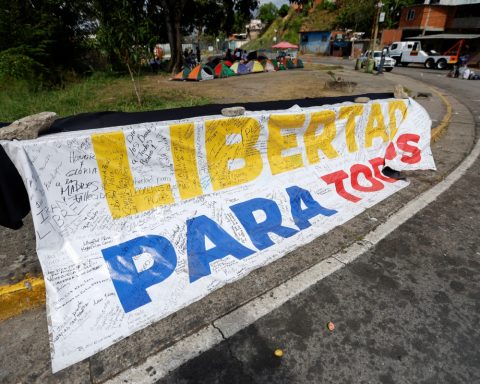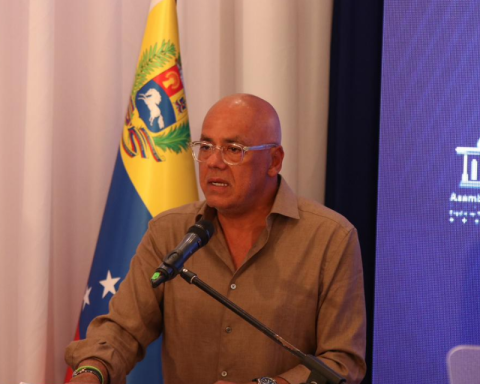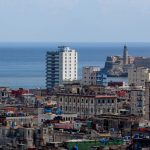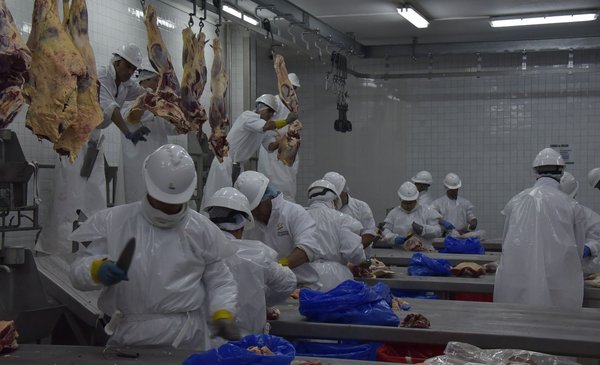Inhabitants of the Eastern Shore of the Lake still do not see benefits with the reactivation of Chevron. They have always been linked to the oil industry, which was the main source of work in the fields of La Rosa, Punta Benítez, Tía Juana, Lagunillas, Bachaquero, Mene Grande and others on the lake. Currently, these activities have been replaced by informal trade and entrepreneurship.
The profile of the Eastern Coast of the Lake in the state of Zulia has been linked for 100 years to the oil industry and was the main source of work that operated in the fields of La Rosa (Cabimas), Punta Benítez (Punta Gorda), Tía Juana Tierra, Lagunillas Tierra (Ciudad Ojeda and Lagunillas), Bachaquero Tierra (Bachaquero), Mene Grande and others in the lake.
For some workers, the activities in the sector have changed little, while another group of employees linked to the state PDVSA assures that, due to the sanctions, the oil remains stored in the yards where the tanks are located, unable to be sent abroad. This situation, they affirmed, has had an impact on the reduction and paralysis of a long list of jobs, Therefore, the activities in the sector have been replaced by informal trade and entrepreneurship.
The workers who are still active on the Eastern Coast of the Lake had to figure out how to get ahead and not depend on the salary they receive from oil companies such as PDVSA, For this reason, they have created businesses in their homes to meet their needs and help their families.
«Three years ago I started in the pastry business. I make cakes, tequeños, among other things. All this because of the very poor income we have in the industry. Although Chevron has already been activated, we have not seen a positive impact. The company is getting worse, everything is in abandonment»said a PDVSA employee who preferred to withhold his name.
This is one more example that starting a business in the country is primarily motivated by “need”. According to a recent study by the Andrés Bello Catholic University and the Institute of Higher Administration Studies, approximately 3 million Venezuelans are entrepreneurs, of which 68% have an already established business and 32% are nascent entrepreneurs.
The results of the Global Entrepreneurship Monitor revealed that 90% of these entrepreneurs had or have as their primary motivation “earning a living because jobs are scarce” when creating a business.
The tanker consulted by SuchWhich He stated that for five years, he has only gone to the state company on Fridays to sign the payroll document in which it is recorded that he went to his job.
“There is no reactivation of jobs, we continue the same as five years ago. The few workers that remain in Pdvsa Industrial are waiting for the reactivation of the facilities, although it will be difficult for the public administration to do so, “he said.
Living again from oil income continues to be a hope for many. A PDVSA worker in the Miranda municipality recalled that in the best years of production, 3 million barrels per day (b/d) were generated throughout the country, Today only 700,000 b/d is produced on average.
However, other figures denote the abrupt drop in production in the area. Of the four PDVSA divisions, the one in the west and especially in Zulia produced by itself more than 2 million b/d before the year 2000, then reaching the lowest figure in decades: 83 thousand b/d in November 2020.
With the restart of the operations of the North American Chevron, the production of Boscán crude oil from Zulian fields recovered to 150,000 b/d, a figure reported in February 2023 thanks to the crude inventories that had not been able to be exported. “and despite this with this amount, many are still surviving,” pointed out the PDVSA worker.
«On the Eastern Coast of the Lake and in many parts of Venezuela we have always lived on oil income, but we forget that we have other natural resources to take advantage of. When oil sales fell, it reflected the need faced by oil workers, Because if oil falls, we are the most affected, that is why most of us have migrated to the ventures,” said Franklin Molleda, an industry worker.
Those who made a career in the oil sector and have made their lives on the Eastern Coast of the Lake cannot wait for the lifting of sanctions or a better management of the main economic industry in the country, which is why little by little they have migrated to trade. informal, but they have also become part of the Venezuelan diaspora.
The state-owned Petróleos de Venezuela had a payroll of 154,000 workers in 2014, which dropped in 2019 to 54,000 employees and today it is estimated that the figure barely reaches 25,000, according to data provided by union leader Iván Freites.
He stressed, however, that this figure of 25,000 employees are those who are active in refineries and administrative headquarters. «There is a good group of workers who are still on the payroll, but no longer attend PDVSA, because they migrated or are working in Venezuela. The precariousness of salaries makes people leave the industry, this had never happened, not even when (General Juan Vicente) Gómez salaries were as low as they are now, just 5 dollars.
Freites stressed that there are between 5,000 and 6,000 workers at the oil facilities in Zulia, while the majority, about 12,000, are in the Orinoco Oil Belt.
Alexander González, an instrument technician and PDVSA worker, expressed that “more movement is needed in all directions. Yes, perhaps Chevron will achieve a positive impact for Zulia, but they need to be more proactive. An improvement has been seen with the reactivation drop by drop of Chevron, but much more is still needed to be able to leave our personal ventures and dedicate ourselves 100% to oil work again, “he added.
Gonzalez pointed out that even before the pandemic there was a significant group of workers who migrated to informal trade, since since then the salary was not enough to cover the needs of their homes.
Trade is very active in the towns on the Eastern Coast of the Lake, an area that no longer only depends on oil operations, but has turned to agricultural activities growing plantains, rice, corn and fruits, among others. Salt-producing companies such as production and in other cases of the production of Pequiven.
«Yes, they are living off oil, but more from commercial activities. There are friends who set up their own businesses because they needed to have other income. The (company) Chevron will contribute to the reactivation of many direct and indirect jobs, and in general, with the economy at the local level, that is what we hope. The ideal is that those who are inactive, be activated very soon to their usual jobs”, said Omar Forero, a PDVSA worker in Zulia.
These workers hope that the reactivation of companies such as Chevron, Petrocar de Colombia and Spanish, Russian and Iranian companies will help the region and all of Venezuela progress so that there will again be opportunities for jobs, infrastructure and future projects.
*Read also: Chevron CEO warns that political risk in Venezuela limits profits
Post Views: 214

















